Questioni have a four year old male timneh african grey. and i just want to understand some of his behavior a little. what does it mean when he drops his wings and mouths my fingers ( he don't bite he just puts light pressure on my fingers) and he makes a light noise? his diet consits of a parrot seed mix as well as a ton of veggies and fruits. he also enjoys pasta very much. he also gets to eat pretty much what we eat. it is not a problem cause usually he bites hard but i just want to understand a little. and it has recently been happening to me for the most part. it happens when i am doing some one on one time. i like it cause he can tend to be mean and at that point i return him to his cage and talk to him while he is on his cage top and i let him know why he is up there and that i did not like his behavior. i tell him this being firm. if you could please getr back to me on this i would appreciate it very much. thanks so much for your time. Tracy
AnswerHi Tracy,
Greys are very "beaky" birds... meaning they like to manipulate thigns with their beaks. It's hard to say what he could be doing with your fingers as I'm not sure what noise you're referring to. If he's not biting hard, dropping his wings a bit and making the noise I think you're talking about, he may see you as "the apple of his eye" so to speak and be trying to court you (eventually mate ;-). Does he regurgitate when he's near you? These are all tell tale signs that you're his one and only. There's nothing wrong with that, but you should definitely discourage the mating/courting behaviors as much as you can. Don't let him chew on your fingers. Always have a foot toy or small toy handy, something he likes to chew on... and when he begins nibbling even biting you, put the toy to his beak and encourage him to bite it instead. When he bites hard, it's important not to say a word to him or make any sudden movements (like jerk your hand away). This is often the response we give to a bite but it actually reinforces the biting behavior. Birds love to be yelled at (not seriously yelled at, but love it when you get loud with them such as saying "ouch! no bite!") or any drama... and it will become a game to them to get the same reaction out of you. Distraction first, then ignoring them if it continues, is best. Time outs work well if the bird is bonded with you, otherwise leaving him be is exactly what he wants. Time outs should be extremely brief. 30 seconds - 2 minutes. You should return him to his cage, close the door, turn your back to him, stay put and not say a word to him the whole time. If he's quiet after about 30 seconds, go ahead and remove him (step him up from inside the cage, don't allow him to climb out on his own) and place him on his play top or back to where he was when the incident occured. Enough of this and he'll start to get the picture.
As for his diet... it's great you're giving him fruits, veggies, pasta... but he should also be on pellets. It's crucial for parrots to have about an 80% pellet | 20% seed diet. Roudybush pellets (medium size for greys) is a great choice as well as Harrisons. Both have lots of nutritional values packed into them that no amount of seeds can ever come close to providing. Introduce the pellet slowly and gradually. Birds are visual eaters so he'll need to "get to know" his pellets before he'll eat them. Keep giving them to him over time (1 - 4 weeks, sometime during that you should start to notice he's munching on them, but if not keep giving them!!!) and gradually INCREASE the pellet amount while DECREASING the seed amount. For example - week one: 80% seed and 20% pellets, week two, 70% seed - 30% pellet... and so on and so on until you're at a 75-80% pellet to 25-20% seed ratio. Greys' calcium needs are different from other birds too and giving him Roudybush or Harrison's pellets will help tremendously. You should not ever have to give him any supplements. He shouldn't be getting too much of any type of vitamin/minerals/nutrients.
You may want to consider getting a physical done by an avian vet if you haven't in a while. Just have basic blood, fecal and physical exam tests done to check his levels. You'd be amazed at the damage an all seed diet can do to a bird.
I hope this info helps and I wish you the best!

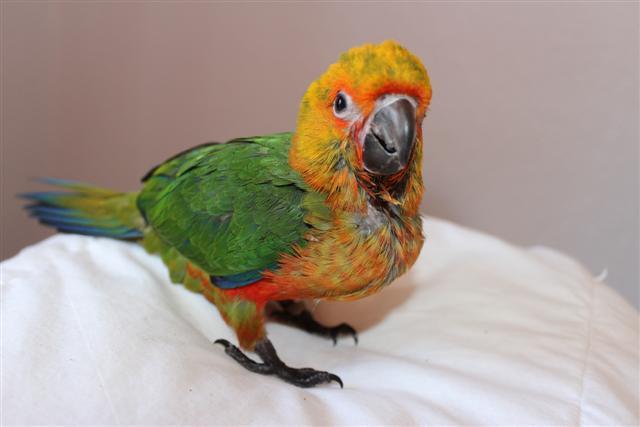 Jenday Conure Weaning?
Question
Castor the Conure
Hi
I have a 9 week o
Jenday Conure Weaning?
Question
Castor the Conure
Hi
I have a 9 week o
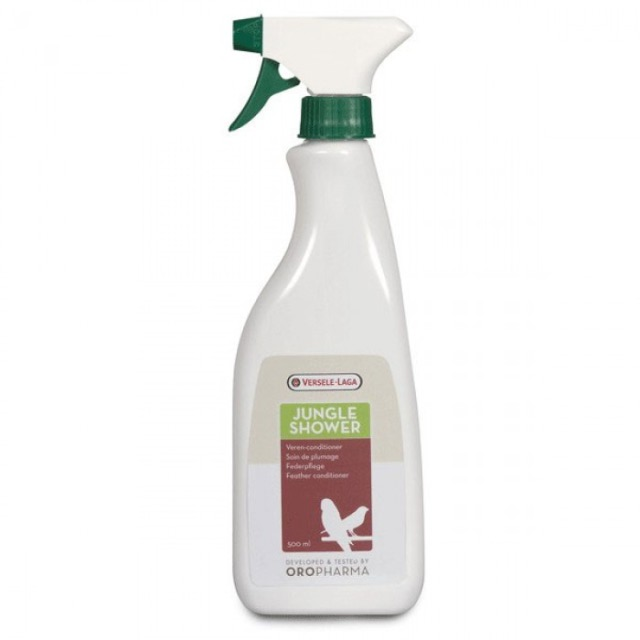 Indian Ringneck Health Issue
QuestionI have an Indian Ringneck who had been neglecte
Indian Ringneck Health Issue
QuestionI have an Indian Ringneck who had been neglecte
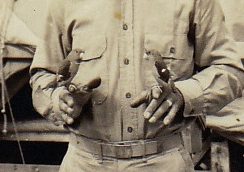 ID Birds
Question
Panama Birds
My uncle served in Panama in 1941
ID Birds
Question
Panama Birds
My uncle served in Panama in 1941
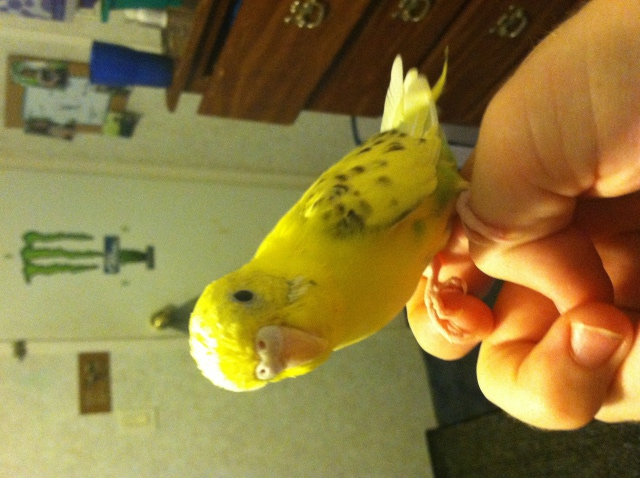 Parakeet gender
Question
Parakeet
Hi, I looked for an expert und
Parakeet gender
Question
Parakeet
Hi, I looked for an expert und
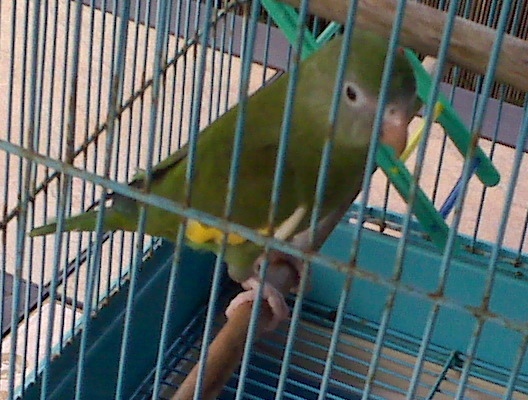 What type of parrot is this?
Question
Friendly bird
A week ago ths small parrot flew
What type of parrot is this?
Question
Friendly bird
A week ago ths small parrot flew